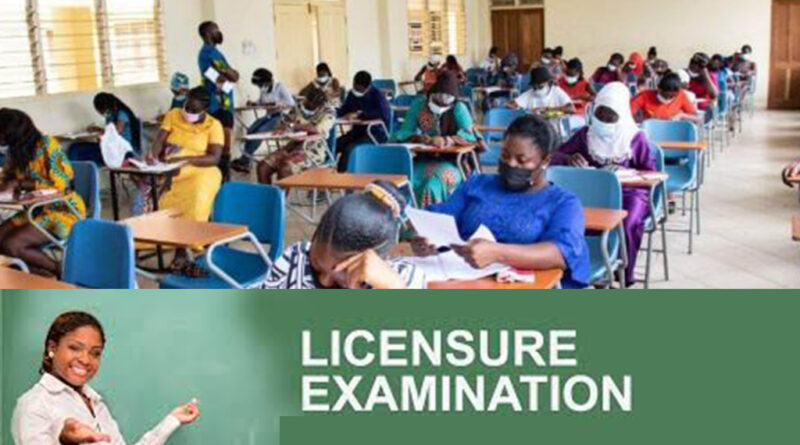When Standards Fall: The Real Cost of Scrapping Teacher Licensure Exams

Are We Nurturing Mediocrity in Ghana’s Education System?
When the Minister of Education recently announced the cancellation of the teacher licensure examination, it struck a nerve with those of us who care deeply about educational quality. This decision, if not reconsidered, risks entrenching mediocrity in a system already grappling with too many loopholes.
For many, the teacher licensure exam served as a critical quality assurance tool. Yes, it exposed glaring professional knowledge gaps among teachers, but that was precisely its value. Instead of confronting these gaps, are we now choosing to sweep them under the carpet?
Years ago, I joined a panel with union leaders from GNAT and NAGRAT to discuss the exam’s high failure rates. Despite their initial support for the exam, they expressed concerns over the difficulty level. I argued the opposite — the questions should be tougher to weed out unfit educators. Surprisingly, they agreed but still suggested using past questions to help teachers “prepare better.” That, to me, was nothing short of spoon-feeding.
Hiding Weakness Instead of Fixing It
The move to cancel the exam is a textbook example of how Ghana often handles institutional weaknesses — we hide them rather than confront and fix them. A thriving educational system should identify gaps and then create remedial pathways to address them. That’s how systems driven by merit and excellence operate.
Unfortunately, Ghana’s system appears to be sprinting in the opposite direction.
From basic schools to universities, mediocrity is normalized. Take, for instance, the BECE and WASSCE exams — once symbols of academic rigor, now tainted by widespread leakage scandals. Yet society applauds the resulting grades, ignoring the rot underneath.
The rot extends even deeper. More than a decade ago, I heard university math lecturers complain about being pressured not to fail students. That pressure has evolved into outright persecution of lecturers with high failure rates in their classes. The unspoken truth? Many students shouldn’t be in those classrooms to begin with.
Commercialization Over Comprehension
Fee-paying students easily gain admission with questionable grades. Yet these same students — after 12 to 14 years of learning English — still struggle to write a grammatically correct sentence. They find reading painful, comprehension a mystery, and essay writing an uphill task. Unsurprisingly, many hover around mediocrity in their academic journey.
However, institutions focus more on pass rates than actual learning. Teaching materials are withheld. Administrative greed overshadows student needs. And yet, somehow, distinctions still flood the system.
The Workforce Reflects the Crisis
Ill-prepared graduates flood the job market, especially in the education sector. Their output mirrors their input: minimal effort, poor service, or no service at all. If tested for true professional knowledge, many would falter.
But here’s the real tragedy: instead of helping such individuals grow, we lower the bar. Rather than raise standards, we bury them.
The Ministry’s decision to cancel the licensure exam is just another move in Ghana’s long history of avoiding hard truths and replacing solutions with rhetoric. We’ll likely set up a new committee to “look into it,” only to forget about it completely — until another regime restarts the cycle.
Final Word to Leadership
The Education Minister must ask himself: Will history remember him as a reformer who pursued quality? Or as someone who chose populist policies that further compromised Ghana’s future?
Because in truth, this isn’t just about exams. It’s about what we’re denying the next generation — the tools, knowledge, and mindset to build a better Ghana.
Call to Action:
If you believe in restoring excellence in Ghana’s education system, speak up. Share this post. Start conversations. Demand accountability. Our future leaders deserve better than mediocrity.
Take-Home Messages:
- Cancelling the licensure exam avoids confronting systemic problems in education.
- Academic malpractice and unmerited promotions breed national incompetence.
- Real reform requires hard choices, not easy exits.
- A strong educational foundation is non-negotiable for national development.




